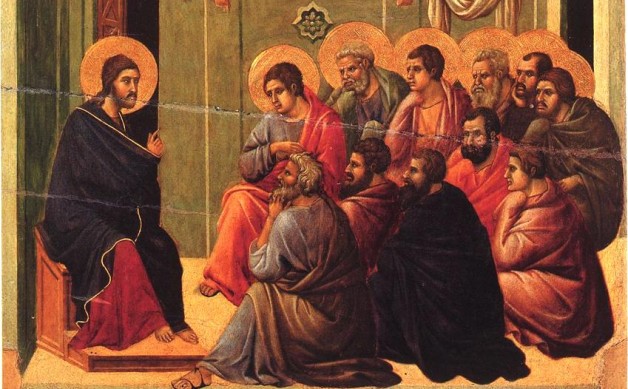One commonly noticed cultural difference between the United States and Latin America is the question one asks after meeting someone for the first time. In the United States, it is almost always, “What do you do for a living?” But in Latin America, the question is usually about the person’s family or place of origin.
Both are reasonable questions, but they do have a different emphasis. While the former identifies a man by his work, the latter considers him as part of a community and particular group of people. An overemphasis on the latter question can certainly be a problem: the individual is placed in a box he did not choose, and may have difficulty removing himself from the problems and stereotypes associated with the people in that box. Despite these possible pitfalls, however, there should be a primacy to this communal aspect in the Christian life.
There are, to be sure, certain virtues connected with what one does for a living: prudence, fortitude, magnanimity, and studiousness, just to name a few. Charity, the most excellent of virtues, however, is a gift from God and should be manifest by the way we treat people in our lives. The ways of charity are not learned primarily through a particular line of work but rather through our relationships with others, and in a special way through our family relationships. The primacy of charity can be seen at the Last Supper in the new commandment our Lord gives to his disciples: “Love one another as I have loved you” (Jn 13:34).
By virtue of our baptism, we become sharers in the divine life, the communion of love that is the Father, Son, and Holy Spirit. Through baptism into the death and resurrection of the Son, who unites man to God, we experience the ultimate act of love that reopens to us sinners the way into the divine life of love that is the Holy Trinity.
Though Christians today are not able to experience Christ’s love by walking and speaking with Christ in the same way as the Apostles did during his earthly ministry, Christ continues his discourse at the Last Supper by telling the Apostles how his love will be communicated down through the ages, saying, “By this shall all men know you are my disciples, if you have love one for another” (Jn 13:35). The love given to us by others, especially our families, modeled on the love of Christ Jesus himself, is the school of charity in which we are first taught who Christ is and how to live his life. The Christian life, according to Jesus’ new commandment, is a life of love for others—not merely of happy feelings, but of self-sacrifice for the good of those whom God has given us to love. This must always be the focus of our lives.
This focus on loving one another can be found among the first Christians after the Ascension of Christ: “Now the company of those who believed were of one heart and soul, and no one said that any of the things which he possessed was his own, but they had everything in common” (Acts 4:32). St. Augustine alludes to this at the beginning of his rule for religious life—the rule followed by Dominicans: “The chief motivation for your sharing life together is to live harmoniously in the house and to have one heart and one soul seeking God.”
I was recently invited to speak about community in the Dominican life with some people seeking to become lay Dominicans. While it was more obvious how a Dominican friar is to follow this exhortation from Acts and the Rule of St. Augustine, the question arose of the practical ways in which lay people can seek to live in community with one heart and one soul, seeking God. In considering this, three principles come to mind which can apply to all Christians.
First, our highest priority must be love—love of God and love of neighbor, especially those whom God has put into our lives in a special way. We become united to God by seeking to live in the unity of charity with others, so it is important to examine regularly how we are responding to this new commandment of Christ. Second, to aid us in perseverance in this self-sacrificing but beatifying love, we must participate in the community of believers, the Church. For many, this will be primarily through the local parish; for lay Dominicans in particular, this would extend to their fraternities. Third, we must realize that our unity in the Church also extends to the Church suffering and the Church triumphant. We can also love those whom God put in our lives by praying for them after their death. We can also pray for the intercession of the saints, that they might help us to be of one heart and one soul with them, glorifying God.
By focusing our life on union with God through following the new commandment of Christ, we might have a different answer the next time we are asked what we do for a living. In addition to mentioning our line of work, perhaps we will also mention the reason for which that work is done: for love of God and others.
✠
Image: Christ Taking Leave of the Apostles, Duccio di Buoninsegna







